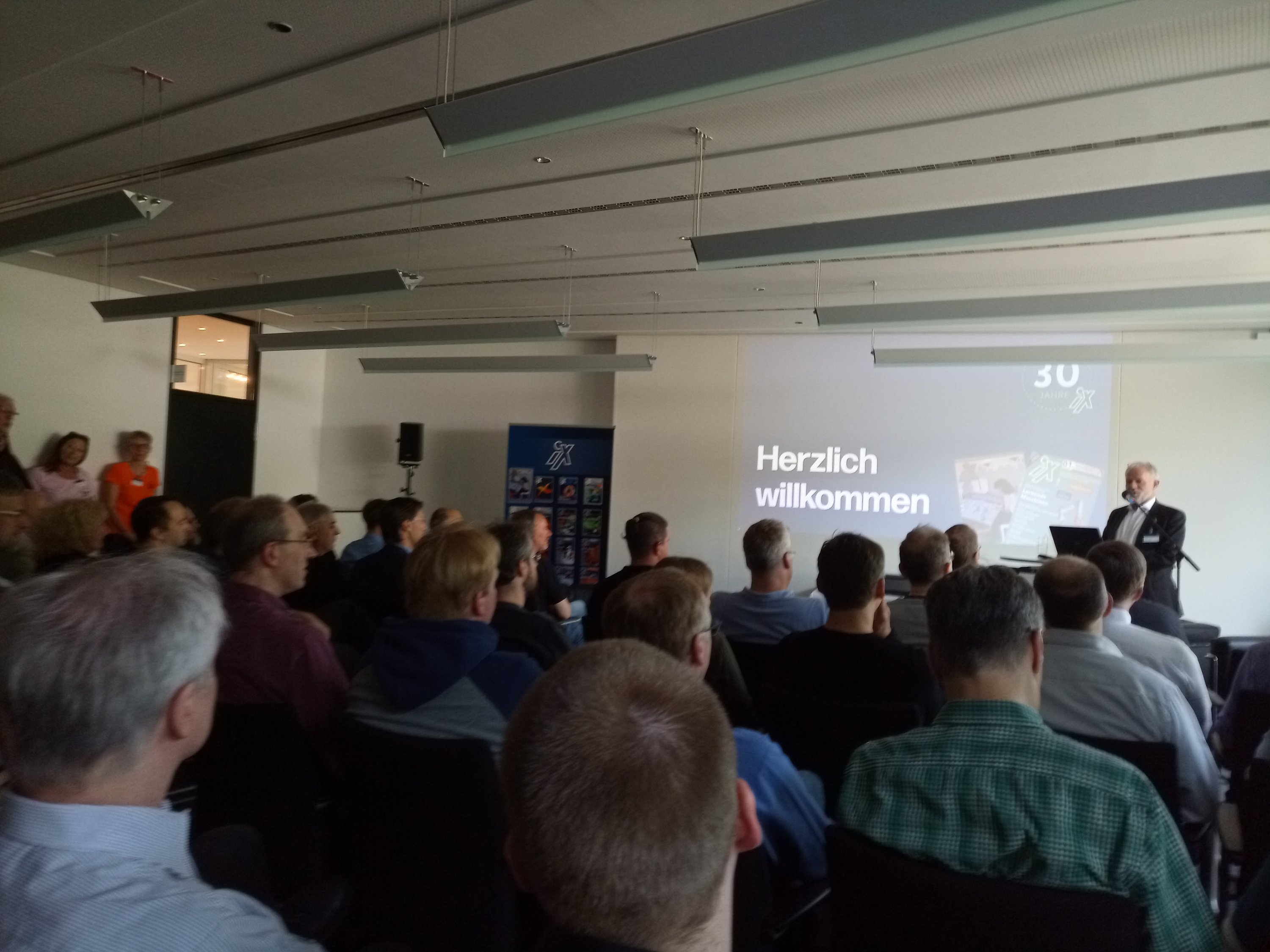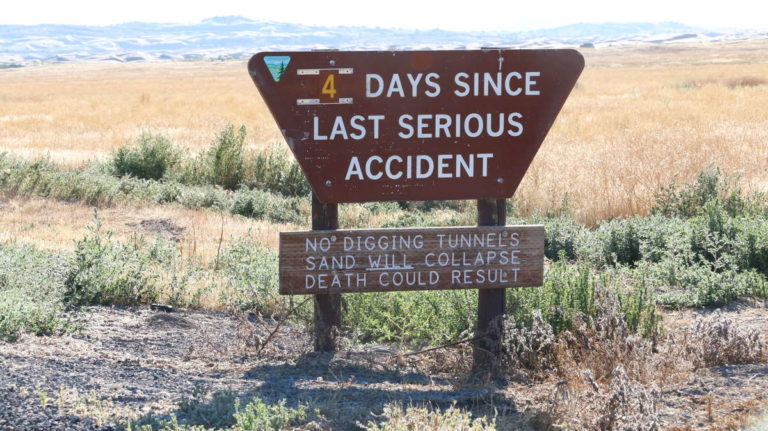https://journals.ametsoc.org/doi/abs/10.1175/JCLI-D-18-0555.1
Author: mfeilner
Hannover. Horse Tower?

Wow: Better Language Models and Their Implications
New job, starting with an anniversary! 30 years iX!

Since May 15, 2019 I have been working at Heise iX. Yeehaw!
Here’s the facts: Our morning sandwich equals a 12 mile drive in Co2.
Reality update: Telling meat-eaters bacon is off the menu won’t work – here’s a better way | Adrian Chiles | Opinion | The Guardian … :
“A breakfast sandwich of sausage, bacon and egg has a carbon footprint equivalent to a 12-mile drive.“
Capitalism is in trouble once it looses its lease on the future… as it does nowadays
“Marx accused religion of being the opium of the masses, distracting them from capitalist exploitation. But capitalism has steadily undermined religion by reliably promising that the future will in fact be materially better, and not because of divine intervention but because of the manmade market. The greatest promise of capitalism is that each generation will rise, on the shoulders of the one before, as a result of the natural workings of a market economy. It should be no surprise that the greatest challenges to capitalism come when that promise begins to be questioned. If capitalism loses its lease on the future, it is in trouble.“
Comparing climate crisis coverage to WWII before the breakout…
Another Reality update: What if we covered the climate crisis like we did the start of the second world war? | Bill Moyers | Opinion | The Guardian … :
“I have been asked to bring this gathering to a close by summing up how we can do better at covering the possible “collapse of our civilizations and the extinction of much of the natural world,” to quote the noted environmentalist David Attenborough, speaking at the recent United Nations climate summit in Poland.”
(…)
“But events educate, experience instructs, and so much destructive behavior has been caused by climate disruption that more Americans today than ever seem hungry to know what’s causing it, what’s coming and what can be done about it. We journalists have perhaps our last chance to help people grasp the magnitude of the threat. My friend and journalist-turned-citizen-activist Bill McKibben told me last week that because of the looming possibility of extinction, and in response to it from the emerging leadership among young people, we have reached a ‘climate moment’ with real momentum, and our challenge as we go forward is to dramatically change the zeitgeist—“to lock in and consolidate public opinion that’s finally beginning to come into focus.””
(…)
“I’ll begin with how I first heard of global warming—before many of you in this room were born. It was 54 years ago, early in 1965, at the White House. Before I became President Lyndon Johnson’s press secretary (“over my dead body,” I might add,) I was his special assistant coordinating domestic policy. One day, two members of the president’s science-advisory committee came by the office. One of them was the famous oceanographer, Roger Revelle. Famous because only a few years earlier he had shaken up the prevailing consensus that the oceans were massive enough to soak up any amount of excess of carbon released on earth. Not so, Revelle discovered; the peculiar chemistry of sea water actually prevents this from happening. Now, he said, humans have begun a “vast geophysical experiment.” We were about to burn, within a few generations, the fossil fuels that had slowly accumulated in the earth over the past 500 million years. Burning so much oil, gas, and coal would release massive amounts of carbon dioxide into the atmosphere, where it would trap heat that otherwise would escape into space. Earth’s temperature could rise, causing polar ice to melt and sea levels to rise, flooding the earth’s coastal regions.“
T. C. Boyle: Ein Freund der Erde … 2025 ist nicht so fern…
 Reality update: Ein Freund der Erde – Wikipedia … :
Reality update: Ein Freund der Erde – Wikipedia … :
“Heinrich Detering schreibt 2001 in seiner Rezension des Romans in der Frankfurter Allgemeinen Zeitung: „Während hier die letzten amerikanischen Helden durch eine Welt waten, in der es nach ‚Endzeitschimmel‘ riecht, denken sie wehmütig zurück an die Zeiten, in denen noch über Wörter wie Global Warming oder El Niño debattiert wurde. […] Im Wechsel zwischen vorher und nachher, zwischen Innen- und Außenansicht des Helden entsteht dabei ein schauerlich-tragikomisches Kippbild. Und unversehens gerät Tys wüste Geschichte zur Parabel über Avantgarde und Demokratie, Moral und Macht. Dabei besteht an krassem Realismus sowenig Mangel wie an grotesken Szenerien.“[2]“
Freiwillige “Selbstverpflichtungen” blockieren die wirklich notwendigen Veränderungen (Nature paper)
Wenn ich das richtig verstehe, ist das was, was man den Scheuerers und Dobrindts und Merkels um die Ohren hauen sollte… aber ich lese noch.
Nudging out support for a carbon tax | Nature Climate Change … :
“Across six experiments, including one conducted with individuals involved in policymaking, we show that introducing a green energy default nudge diminishes support for a carbon tax. We propose that nudges decrease support for substantive policies by providing false hope that problems can be tackled without imposing considerable costs. Consistent with this account, we show that by minimizing the perceived economic cost of the tax and disclosing the small impact of the nudge, eliminates crowding-out without diminishing support for the nudge.“
Wie ist es eine Fledermaus zu sein? Über den subjektiven Charakter der Erfahrung…
Über den Seinsstatus des subjektiven Charakters der Erfahrung – Tabula Rasa Magazin … :
“Wie es ist eine Fledermaus zu sein
In seinem Aufsatz wirft Nagel Fragen auf, deren Gewichtung in der aktuellen Debatte stark differiert. Der Hauptstrang der Interpreten begreift die Aussagen zur Nicht-Reduzierbarkeit von nur subjektiv erfahrbaren Zuständen des phänomenalen Bewusstseins auf, durch die Wissenschaften in einem objektiven Sinne beschreibbare Zustände, infolge des grundsätzlich fehlenden Zugangs, als zentral. Vereinfacht ausgedrückt bedeutet dies, dass wir in einem objektiven Sinne nicht wissen können, wie es ist eine Fledermaus zu sein, da es uns nicht möglich ist die dafür notwendige subjektive Perspektive einzunehmen. Es sind meiner Meinung nach jedoch nicht epistemologische oder sprachphilosophische Fragen, welche uns diesbezüglich umtreiben sollten – Nagel selbst verweist in Fußnote 8 dezitiert darauf, dass er kein epistemologisches Problem formuliert. Es ist vielmehr die ontologische These, dass es für einen Organismus x vom Typ T irgendwie sein kann, ein Organismus vom Typ T zu sein, welche einer tiefer gehenden Erörterung bedarf.“
Hacker erklären, welche Messenger-App am sichersten ist – VICE
Oh oh… Big Water is coming …
Must see: The collapse of civilization.
I took the time yesternight to watch that twice, and very sadly I didn’t find much where I couldn’t agree with Jonathan Blow – Preventing the Collapse of Civilization (English only) – YouTube … :
Austria – Trump, there’s a lot of parallels.
The Fox story anybody?
Strache Caught on Camera in Ibiza – Secret Recordings – SPIEGEL ONLINE
The group mingling on the terrace on the evening of July 24, 2017, drinking champagne, eating tuna tartare and sushi, was discussing delicate topics: How could they make sure that a Russian investor was awarded contracts from Austrian businesses and the government? They were thinking big. Nothing seemed impossible. They discussed casino licenses, the sale of an old luxury hotel, contracts for highway construction — all of it for the Russian investor. They even discussed a takeover of the Kronen Zeitung, one of Austria’s most widely circulated newspapers.
Der Verlag für Polizeiwissenschaft hat ein SSL-Problem…
Ich musste Konqui verwenden, um das Handbuch für Öffentliche Sicherheit anzuschauen… weil Firefox und Google den Zugriff verweigerten. 🙂

Rainloop Webmail anybody? Simple, Fast and no database.
“SIMPLE, MODERN & FAST WEB-BASED EMAIL CLIENT Modest system requirements, decent performance, simple installation and upgrade, no database required – all these make RainLoop Webmail a perfect choice for your email solution.”
Looks really really good so far.
Awesome: Christine Prayon alias Birte Schneider (Heute Show) wettert gegen Limux-Ausstieg
“Für die Zukunft” | Telepolis … :
“Mein Sohn hat mir das erklärt. Der ist fünf. Der schwänzt freitags immer Kindergarten und geht demonstrieren. Für seine Zukunft! Der hat zu mir gesagt, als ich gerade am Computer saß und gearbeitet hab (war an so’m Gag dran über das Bindegewebe von Andrea Nahles und musste mich voll konzentrieren, weil ich nicht wusste, ist das noch Frauenkabarett – wegen Bindegewebe – oder doch schon politisches Kabarett – wegen Andrea Nahles? … Und da fragt der mich, mein Sohn, warum ich IMMER noch Windows benutze und nicht Linux! Ob ich etwa KEIN Interesse an seiner Zukunft hätte. Es sei – Zitat – “absolut zwingend, das digitale Netzwerk von jeder Kontrolle durch privates Kapital oder der Macht des Staates freizuhalten. – Slavoj Zizek.””
(…)
“Sagt mein Sohn: Mama? … Du hast echt nichts verstanden. Ich demonstriere für’ne bessere Welt. Ob es um Linux geht oder bezahlbaren Wohnraum oder darum, das Klima zu retten, ist doch im Grunde alles eins. Es geht um alternative Lebens- und Gesellschaftsformen, Mama! Und die braucht’s langsam echt, wenn wir die Karre nicht komplett an die Wand fahren wollen!“
Von wegen Apple oder Xerox … Deutsche Ingenieure waren die Erfinder der Maus!
“Rollkugel”: Erfinder gibt allererste PC-Maus nach Paderborn | heise online
“Mallebrein hatte die Maus für Telefunken entwickelt, das Unternehmen verkaufte sie ab 1968 zusammen mit seinem damaligen Spitzencomputer TR 440. Allerdings nur 46 Mal, vor allem an Universitäten, der Rechner war mit bis zu 20 Millionen Mark praktisch unerschwinglich teuer, sagt Mallebrein. Seine Maus – für 1500 Mark zu haben – geriet in Vergessenheit.”
Ithaca Panorama … Brought to you by Hugin.
Here’s my Ithaca (Home of Ulysses) panorama in low resolution – created by open source stitching tool Hugin . Original has 11 photos (20 MBit), taken in portrait mode. Klick to open medium resolution (11 MByte) or send a mail to me to get full resolution. This shot was taken at the Kathara Monastery. Wikipedia on Ithaca.
Early galaxies shone brighter and hotter than expected | Astronomy.com
http://www.astronomy.com/news/2019/05/early-galaxies-shone-brighter-and-hotter-than-expected
“This transition is known as the epoch of reionization, and it marks the cloudy edge of cosmic history, past which astronomers will never see.“
